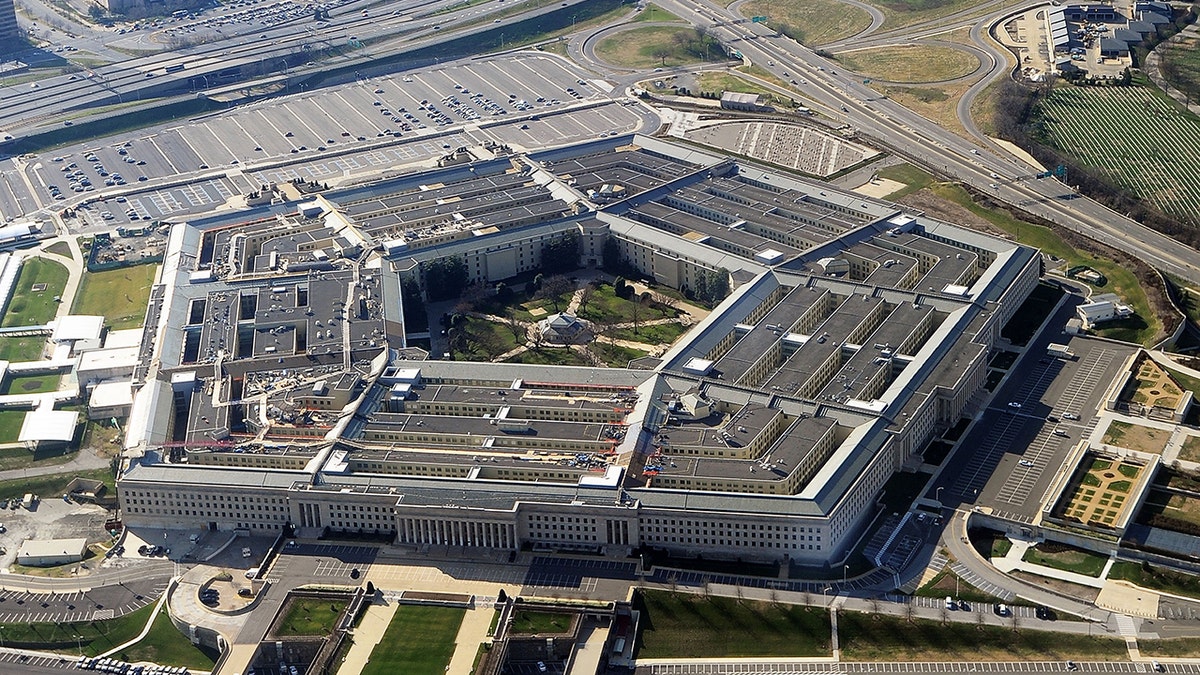Fox News Flash top headlines for March 30
Fox News Flash top headlines are here. Check out what's clicking on Foxnews.com.
Aggressive classification of U.S. government documents is harming national security and limiting communication on key projects, a new report finds.
The Nonproliferation Policy Education Center (NPEC) released the white paper, titled "Over-classification: How Bad Is It, What’s the Fix?" earlier this month.
"The excessive secrecy of high-end classified information, called special access programs or SAPs, is causing great harm to our nation’s security and excessively bloating budgets, and reducing our innovative edge,"the report posits. "The unhindered proliferation of these SAPs and the lack of oversight and accountability are deeply concerning, as China rapidly develops new weapons systems and tools that we are unable to match in this unwieldy environment."
VIDEO OF FIGHTER JETS SHOOTING DOWN UFOS OVER ALASKA IS CLASSIFIED, WON'T BE RELEASED: PENTAGON

The Pentagon, which is the headquarters of the United States Department of Defense, is the world's largest office building by floor area. (Staff / AFP via Getty Images)
It continues, "Military advisors and staff in the Air Force, Army, Navy, and the nation’s Intelligence Community voice similar complaints. Each has a tale of military operational dysfunction aided or abetted by over-classification. For example, military units on the battlefield often resorted to using commercial imagery because they were unable to access the excessively classified imagery gleaned from an SAP."
The report was based on interviews with current and former officials within the Defense Department and intelligence community.
READ THE REPORT - APP USERS, CLICK HERE:
The NPEC also gathered data and testimony from State Department officials and congressional insiders.
Before the report was published, the report was presented to Congress's Public Interest Declassification Board in a private meeting earlier in the month.

Henry Sokolski, executive director of the Nonproliferation Policy Education Center (Tom Williams / CQ Roll Call / File / Getty Images)
Examples of obstructing classifications include duplicate programs within the military under development without cross-communication, as well as the U.S. Space Force chief being unable to publicly mention satellites frequently mentioned by name in the press.
"Currently, our government has over 2,000 security classification guidebooks and roughly 1,400 original classification authorities. It is unworkable in today’s fast-paced environment where decision advantage is crucial. Nobody can consult them all and they don’t," the NPEC said of its findings.
CLICK HERE TO GET THE FOX NEWS APP

The FBI seal is displayed at the agency's headquarters in Washington, D.C. (AP Photo / Jose Luis Magana / File)
The nonprofit added, "These numbers, and the impossibility of mastering their guidance, is a key reason so many government staff simply press the classified button — it’s safe, it’s easy, and it takes little or no thought."













































